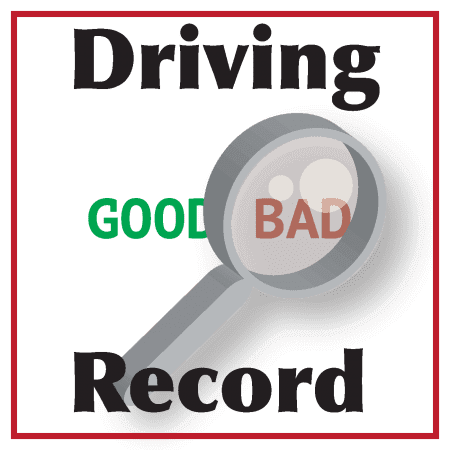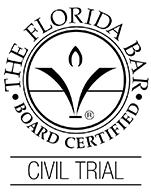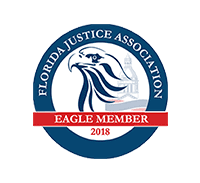 Are Driving Records Admissible in Court?
Are Driving Records Admissible in Court?
Many times after a traffic crash victims are left wondering if the at-fault driver had a history of bad conduct on the public roads as evidenced by their driving records. Some drivers are downright dangerous. We have all seen people driving on the roadways looking at their cell phones. There also exists a subculture of drivers who act like everything is a race. After a traffic crash, it is sometimes important to determine if the at-fault driver has a history of traffic violations.
Unfortunately, prior traffic violations are usually not admissible as evidence in a civil trial for damages in Florida. In fact, the victim of a traffic crash can’t even tell the jury who got the ticket. Driving records are not generally admissible in Florida courts.
Exceptions to the Rule
Negligent Entrustment
When a claim is made for Negligent Entrustment, past driving records are admissible to show the person who entrusted the vehicle should have known better. Negligent Entrustment is defined by Black’s Law Dictionary as “the act of leaving a dangerous article (such as a gun or car) with a person who the lender knows, or should know, is likely to use it in an unreasonably risky manner.” Negligent Entrustment claims come up most frequently in high-value claims such as traffic fatalities and catastrophic injuries. That is because Florida has adopted the Dangerous Instrumentality Doctrine.
The Dangerous Instrumentality Doctrine holds owners of dangerous instruments strictly liable for damages caused by the dangerous instrument even if someone else is using it at the time of the harm. The Florida Supreme Court has held that motor vehicles are Dangerous Instrumentalities, See Southern Cotton Oil Co. v. Anderson, 80 Fla. 441 (1920). However, Florida Statute 324.021(9)(b)(3) provides for caps on damages under the Dangerous Instrumentality Doctrine in the limited situation that an owner is a person (there are no caps on damages under the Dangerous Instrumentality Doctrine if the owner is a business).
A claim of Negligent Entrustment can be used in order to obtain a judgment against an owner in excess of the caps provided in Florida Statute 324.021(9)(b)(3).
Punitive Damages
Driving records are also sometimes admissible in punitive damage cases, such as cases involving racing or drunk driving, to show a pattern of misconduct. In Punitive Damage claims, one must prove either “intentional misconduct” or “gross negligence.” In offering up proof, evidence can be presented of the actual knowledge of the wrongfulness of the conduct. While in drunk driving cases, evidence of prior DUI’s would be relevant. In racing cases, evidence of prior speeding tickets would be relevant. Lastly, in texting and driving injuries, evidence of prior citations for texting and driving would be relevant.
How Do I Get the At-Fault Driver’s Driving Records in Florida
Under Florida law, crash records and driver license information are accessible to the public. The Driver Privacy Protection Act, 18 United States Code, Section 2721, keep personal information like a person’s social security number, driver license number, name, address, telephone number and medical or disability information contained in their motor vehicle and driver license records private by limiting those who can have access to it. Florida Statutes Section 119.0712(2) also protects emergency contact information and email addresses.
At Dismuke Law, we have rigorous systems in place that collect data. We collect information and have access to databases that are not available to the public. If you have questions about your auto accident call (863) 292-6922.


![cftla-member[2]](https://www.1800askdave.com/wp-content/uploads/2022/03/cftla-member2.png)
![cftla-member[3]](https://www.1800askdave.com/wp-content/uploads/2022/03/cftla-member3.png)










